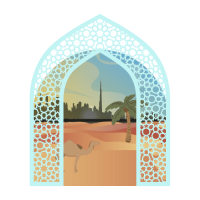Thinking of moving to Dubai? Wondering about the cost of living for a single person or couple in Dubai?
The overall cost of living for a single person or couple is similar in Dubai. As a couple, it works out slightly cheaper per person due to sharing the cost of accommodation and bills.
This is based on a moderate lifestyle and is broken into key categories such as housing, transportation, food, dining out, entertainment and telecoms below. Giving you the average cost to live in one of the most luxurious cities in the world!
Aside from my own experience of living costs, I interviewed numerous expats living in Dubai from all different countries to make sure the values were accurate. I found my expenses were close to the average.
I’ve also included some option extras at the end if you want to know the cost of an upgraded lifestyle in Dubai.
Dubai’s cost of living index
How does Dubai compare to other cities for the cost of living?
| Rank | City | Location | Change |
| 1 | Hong Kong | Hong Kong (SAR) | 0 |
| 2 | Singapore | Singapore | 6 |
| 3 | Zurich | Switzerland | -1 |
| 4 | Geneva | Switzerland | -1 |
| 5 | Basel | Switzerland | -1 |
| 6 | New York City, NY | United States | 1 |
| 7 | Bern | Switzerland | -2 |
| 8 | Tel Aviv | Israel | -2 |
| 9 | Copenhagen | Denmark | 2 |
| 10 | Nassau | Bahamas | 6 |
| 11 | Los Angeles, CA | United States | 6 |
| 12 | Shanghai | China | 0 |
| 13 | Beijing | China | -3 |
| 14 | San Francisco, CA | United States | 5 |
| 15 | Honolulu, HI | United States | 5 |
| 16 | Seoul | South Korea | -2 |
| 17 | London | United Kingdom | -2 |
| 18 | Dubai | United Arab Emirates | 13 |
| 19 | Tokyo | Japan | -10 |
| 20 | Shenzhen | China | -7 |
As you can see from the table, Dubai is now the 18th most expensive city to live in, in the world and has moved up by 13 positions since 2022. This is mostly due to the huge rent price increases in recent years.
It’s also important to keep in mind that Dubai is the most expensive Emirate to live in, in the UAE. Abu Dhabi used to be more expensive than Dubai for housing.
Cost of living in Dubai breakdown
Housing
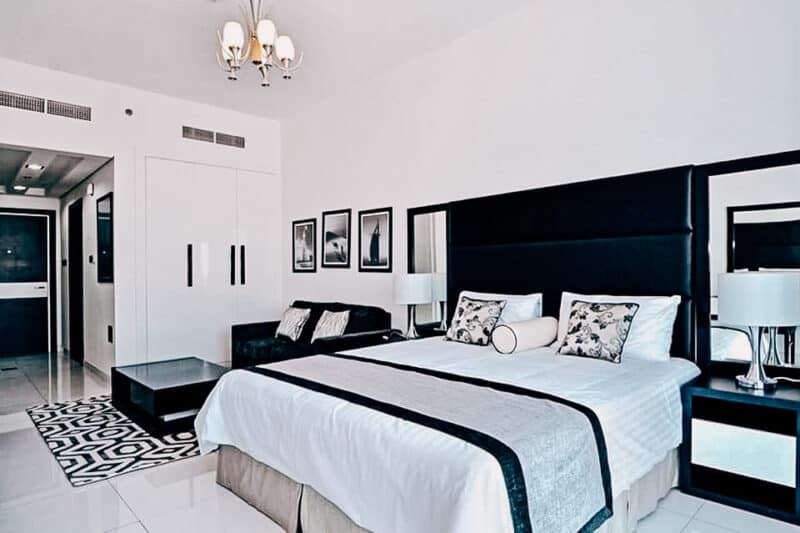
Dubai has a good supply of new modern homes. However, since the start of 2021, the demand in Dubai has increased and rental prices have doubled in most areas in the last few years.
To rent a one-bedroom apartment that isn’t right in the centre of Dubai, close to the Burj Khalifa, but not too far out will on average cost between 7000 to 8000 AED ($1905 to $2178 USD) per month.
A popular area due to its affordability without being too far out is Jumeirah Village Circle, where you can find a good amount of options between 5000 to 6250 AED ($1361 to $1702 USD)
The centre of Dubai, called Downtown Dubai, is the most expensive area. The second is Palm Jumeirah. Find out more about the areas of Dubai.
In terms of apartment size, Dubai is very generous compared to other global cities. Studios are typically 400 – 500 sqft (37 to 46 sqm) and one bedrooms typically 750 sqft to 950 sqft (70 to 88 sqm).
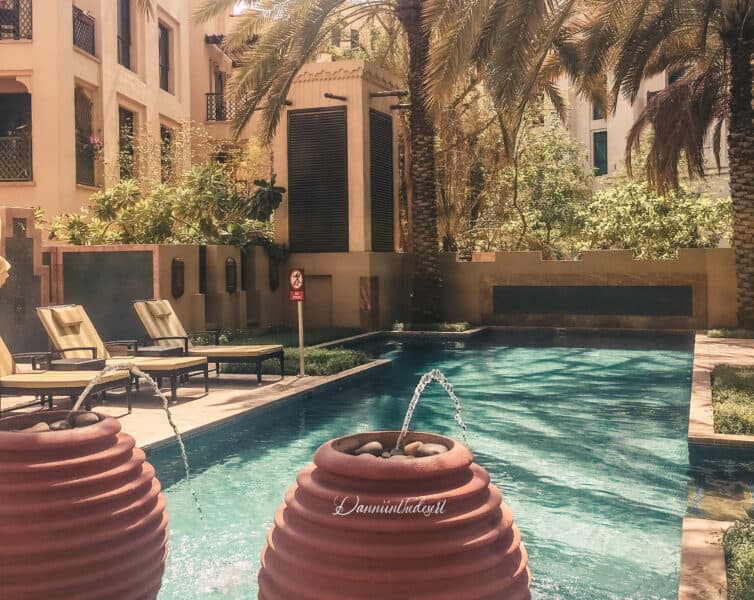
Another perk of Dubai is that most apartment buildings have resident-only swimming pools and gyms. People find they have a high standard of living in comparison with the price. As someone who previously lived in London, it made a nice upgrade.
One thing to keep in mind – If you live in a more expensive area like Downtown Dubai or Jumeirah, other living costs increase. Local food places and grocery charge higher prices in those areas. I’ve even ordered items from the same restaurant chain but received a smaller portion for the same price in Downtown Dubai.
If you’re happy to have roommates, the costs per month are similar to renting a studio but you’ll be in a better location like Dubai Marina or Business Bay.
The other advantage is that most rooms include all the bills, such as electricity, water and wifi. Some even include a maid service every week! Typically costing between 5000 – 6000 AED ($1361 – $1634 USD) including bills.
Insider tip – If you don’t mind having a smaller room, then search for a maid’s room. This is a single or small double bedroom with an ensuite and is the cheapest room in a flat or villa share.
Bills
Most apartment buildings have centralised air conditioning systems, locally called “chiller.” You can find apartments that include the chiller fees, which saves you a lot of money in the summer. In some rare cases, you can find long-term rental apartments that include water and electricity as well.
All electricity and water comes from Dubai Electricity & Water Authority (DEWA for short). For air conditioning, everything comes from District Cooling. That means there’s no ability to price compare or change suppliers.
Electricity and water, on average for a single person will also be around 300 AED ($82 USD) a month and for a couple around 500 AED ($136 USD). Of course, this price can vary a lot depending on how much you use.
Chiller can cost anywhere between 200 AED to 800 AED ($55 to $218 USD), increasing in the summer and decreasing in the winter. If you work from home and need it 24/7, then it’s likely to be on the higher end.
Finally, you also have a yearly housing fee (also called Municipality fee) if you rent a place, this is 5% of the annual rent and is added onto your DEWA bill each year. So it’s recommended to save this amount each month.
The housing fee is similar to council tax in the UK and pays for keeping the city clean, waste management and other government services related to housing.
Insider tip – I highly recommend to try and find a building that does include the chiller costs as this will save you a lot of money. Dubai is a desert climate where during the summer temperatures can reach the high 40s (that’s over 100 in Fahrenheit!). Search for “Chiller free” on rental websites.
Total for housing with utilities
Shared accommodation room: 5000 AED ($1361 USD) per month
Costs per month
Studio: 4500 AED ($1225 USD)
One bedroom: 7000 AED ($1906 USD)
Electricity & Water: 300 AED ($82 USD)
Chiller: 300 to 500 AED ($82 to $136 USD)
Housing fee: 225 AED to 350 AED ($61 to $95 USD)
= 4800 AED to 7600 AED on average per month ($1307 to $2069 USD)
= 5000 to 7800 AED on average for a couple per month ($1361 to $2124 USD)
Since chiller is for the entire apartment, often this cost doesn’t change whether renting single or as a couple. It’s only the electricity and water consumption. So for housing, a couple will typically only pay an extra 200 AED in bills.
Internet, TV & Phone
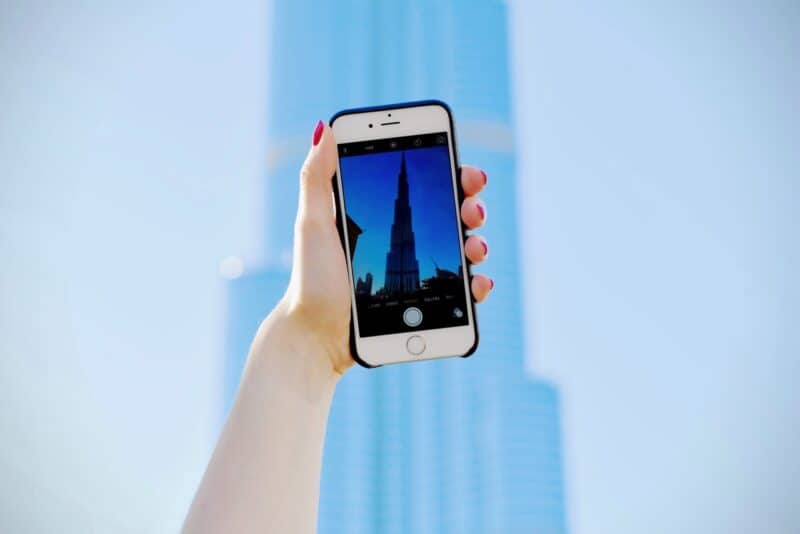
The UAE is expensive for internet and television compared to most countries. There are only two companies Etisalat & Du. Virgin is the 3rd but they don’t offer wired home internet, only 5G.
Packages with home internet and TV start from 286 AED ($78 USD) for Du and 314 AED ($85 USD) a month for Etisalat. Both include unlimited usage with a 500 Mbps speed. Generally, the internet is fast and reliable in Dubai.
Many buildings will only have one provider, so you won’t get to choose between Du or Etisalat. Du is cheaper however Etisalat is known for its better customer service.
If you want internet only, plans start from 209 AED ($75 USD).
For your mobile (or cell phone if you’re American), based on the average minutes and data consumption needed would be 150 AED ($40 USD) a month when buying a package. This will get you around 300 local minutes and 4GB of data
Insider tip – I wouldn’t advise signing up for a post paid contract as you don’t save any money compared to pre-paid. On top of this, when it comes to leaving Dubai you have to pay fees typically to end the contract and if not closed down properly you can be refused exiting until the final bill is paid
Totals for telecoms
TV & Home Internet: 314 AED ($85 USD)
Mobile (Cell): 150 AED ($40 USD)
Total: 464 AED ($125 USD) per month
Food & basic necessities
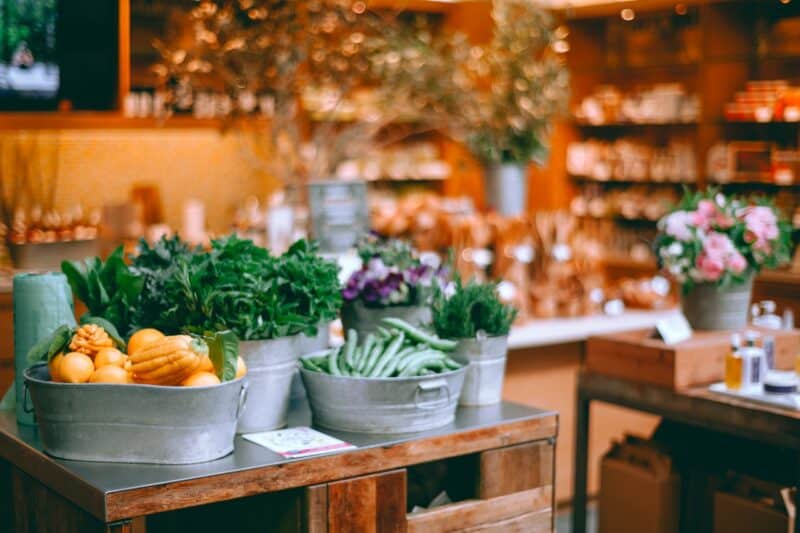
Basics, such as meat, bread, vegetables, fruit, rice and water are quite reasonable in Dubai. You can keep costs to approximately 250 AED ($68) per week per person and most people we interviewed were around a similar average spend. This is 1080 AED a month ($294 USD) per month.
Most vegetables and fruits are done by the kilo, costing as little as 5 to 10 AED ($1-3 USD) per kilo. Typically items coming from Egypt, India or locally are cheaper.
Groceries are pretty reasonable in Dubai unless you want imported items from Western countries. These items are charged at a premium, typically 25 to 30 AED (that’s $6/7) per item.
Popular Western imported items are non-dairy milk, vegan items, gluten-free products and cheddar or French cheese. As there are fewer local alternatives.
Prices have increased with inflation in Dubai but not as much compared to other countries.
| Food item | Daily Cost |
| Milk (regular), (0.25 liter) | 1.83 AED |
| Loaf of Fresh White Bread (125.00 g) | 1.31 AED |
| Rice (white), (0.10 kg) | 0.73 AED |
| Eggs (regular) (2.40) | 2.19 AED |
| Local Cheese (0.10 kg) | 3.28 AED |
| Chicken Fillets (0.15 kg) | 4.11 AED |
| Beef Round (0.15 kg) (or Equivalent Back Leg Red Meat) | 5.62 AED |
| Apples (0.30 kg) | 2.39 AED |
| Banana (0.25 kg) | 1.61 AED |
| Oranges (0.30 kg) | 2.24 AED |
| Tomato (0.20 kg) | 1.02 AED |
| Potato (0.20 kg) | 0.82 AED |
| Onion (0.10 kg) | 0.40 AED |
| Lettuce (0.20 head) | 1.34 AED |
| Daily amount per person | 28.89 AED (7.87 USD) |
| Amount per person (31 day month) | 895.53 AED (243.82 USD) |
Soft drinks such as cola or lemonade are expensive due to the tax on sugary drinks. Alcohol is now cheaper in Dubai due to removing the 30% tax, you have to go to a specialist off-license to buy it as it’s not available in supermarkets.
Personal hygiene items such as shampoo and conditioner also tend to be Western brands, so are more expensive. Indian brands are cheaper in comparison. So for US, EU or UK items, they’ll cost between 25 to 50 AED ($6 to $13 USD) compared to 5 AED to 15 AED for Indian brands.
Total for food & necessities costs
Groceries: 896 AED ($244 USD)
Other essential items: 100 AED ($27 USD)
Total: 996 AED ($271 USD) per month
As a couple, it’s likely to be double this amount, depending on how cost-savvy you are as a couple.
Dining Out
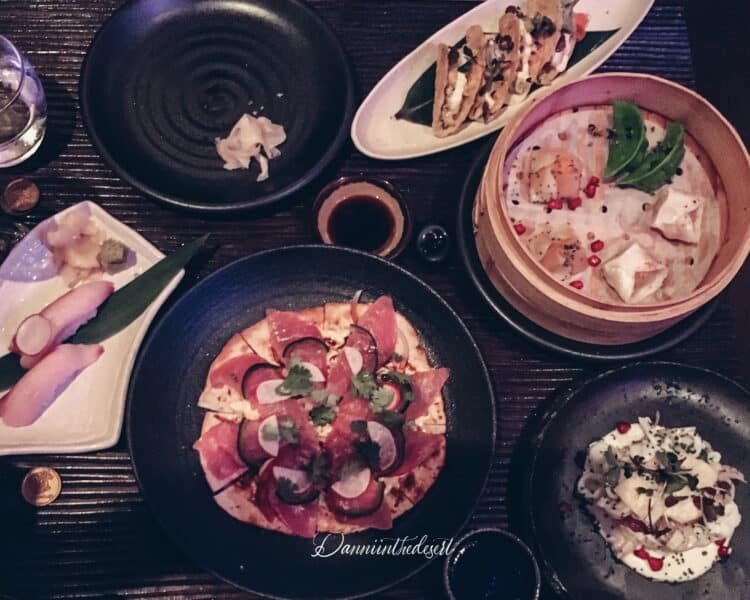
Dubai has so much to offer for any budget, you can go for an amazing Indian meal for as little as 25 AED ($7) or you can live like a King or a Queen in a fine dining restaurant! Where you can spend 1000 AED ($272 USD) for a 3-course meal with drinks.
A usual mid-range restaurant will cost between 100 to 150 AED ($27 – $40 USD) for a decent-sized meal and drink. You can find from gourmet burgers to Mexican to Chinese in this range.
Depending on the area where you dine, you can find large price differences. Popular tourist spots such as Downtown, Palm Jumeirah and Madinat Jumeirah are more expensive with smaller portions. Affordable areas are Satwa & International City due to a large South Asian population.
In Satwa, you can enjoy all-you-can-eat hot pots for 30 AED ($8 USD) per person or tasty Afghani bread filled with meat and cheese for only 6 AED ($2 USD).
Across Dubai, you can pick up a Karak chai tea for 2 AED ($0.54 USD) from one of the many cafeterias in the city. They also offer cheap meals such as hot sandwiches, wraps and burgers with fries.
One local dish that is very cheap to eat is called Regag, which is a thin Emirati bread with various fillings such as egg, cheese, fish sauce or crisps (chips) for 5 to 7 AED ($1 to $2 USD).
You really can enjoy food out depending on your budget in Dubai.
Insider tip – There are two apps which can help save on dining out. Zomato Gold gives you a discount off dining and buy one get one free offers. The Entertainer offers buy one get one free on meals at many restaurants. The Entertainer has a free version with limited offers and a paid while Zomato Gold is paid only.
Totals for dining out
Dining out twice per week: 1300 AED ($354 USD)
Total: 1308 AED ($354 USD) per month
Transport
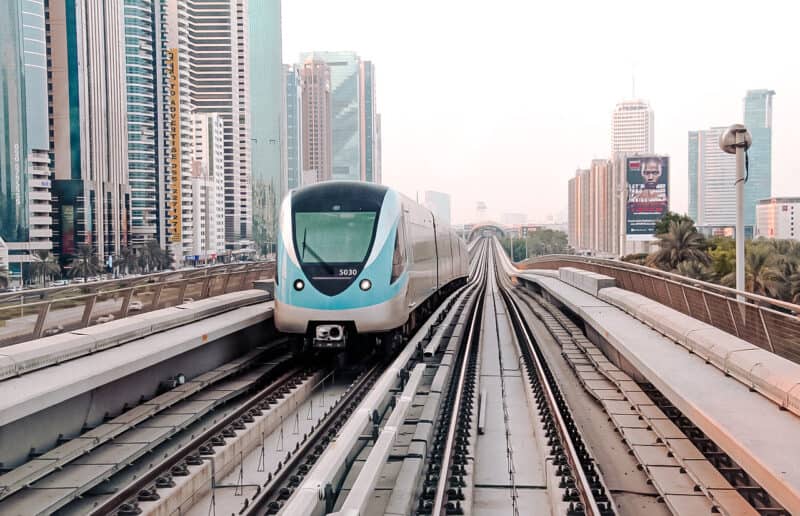
To have a good lifestyle in Dubai, it’s highly recommended to have a car. As taxis will add a lot to monthly living costs.
Check rental car prices in Dubai 🚗
Dubai is designed for cars and not pedestrians. Many hotels have long driveways with free valet parking and no pedestrian paths, you will get very strange looks for walking up them and most restaurants are inside these hotels.
Petrol is cheaper compared to the UK and Europe, however, it isn’t as cheap as it used to be. It’ll cost around 120 AED ($33 USD) to fill a smaller car tank engine. A full tank used to last me a week, driving to and from work plus a few trips on the weekend.
Insider tip – If you’re planning to stay one to two years, one of the easiest ways to get a car with less stress is a long term rental contract. You can get a car for around 1000 AED ($272 USD) a month. If you prefer a month by month basis you will typically pay between 1200-1500 AED ($327 – $408 USD) a month for a Hyundai Accent or Chevrolet Spark
If you can’t drive or want to save money by using public transport. A bus and metro pass, called Nol card, costs 140 AED ($38 USD) for one zone and 460 AED ($125 USD) for two zones per month. The monthly pass requires Emirates ID, so you’ll need to have your visa processed before getting the pass.
Without an Emirates ID, regular daily journeys would cost between 300 to 900 AED a month.
Bus stops and metros are all airconditioned with many connected airconditioned walkways between places.
Uber and Careem are available, a short journey of 10-15 minutes will cost around 30 – 35 AED ($8 – $9.5 USD) and a longer journey from Downtown Dubai to Dubai Marina would be around 85 AED ($23 USD).
Insider tip – Dubai gets extremely hot in the summer. So even walking to the bus stop or metro station can be tough in June, July & August unless you rent somewhere that is only a few minutes walk to the bus stop or metro stop.
JLT and Dubai Marina work very well for using public transport. Not only do you avoid the bad traffic coming into those areas but the tram and metro network cover the area very well. So it’s easy to find a building with a stop nearby.
If you plan to go out every day and will be living further out to rent a more affordable studio or one bed, then I would recommend hiring a car. Since there isn’t yet a metro built for areas like Jumeirah Village Circle.
Total costs for transportation
Car Rental: 1200 AED ($326) per month
Petrol (Gas): 520 AED ($142) per month
Total = 1720 AED ($468) for a car per month
Public transport: 460 AED ($125) per month for a two-zone pass
Check rental car prices in Dubai 🚗
Social

Dubai has a large party scene and alcohol is expensive, this is one area that can easily increase your monthly costs. Due to the large expat population, the city is very social and it’s easy to make friends and end up going out!
Insider tip – To buy and drink alcohol at home still requires an alcohol license, find out more about the Dubai alcohol laws in this article
A glass of wine or a pint of beer in a restaurant or bar costs between 50 AED ($13 USD) to 90 AED ($25 USD) depending on the venue. Portion sizes are small for wine with 125ml being the standard measure for this price.
If you spend only 150 AED a week on alcohol, which is 2-3 drinks a week, this will add up to 650 AED ($177 USD) as a monthly cost.
Insider tip – There are many ladies nights and a few gents nights to save money plus happy hours. Join our dining deals and night out deals group to find deals in the UAE.
Totals for socialising
Social activities: 650 AED ($177 USD) per month
Entertainment & Days out
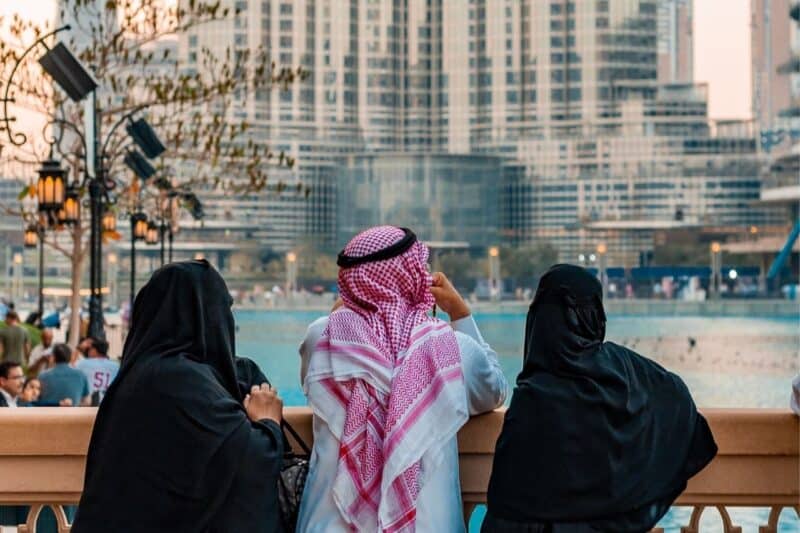
Dubai has lots of theme parks and water parks for a range of prices. Activities do tend to be expensive in Dubai
For most of the theme parks, you’ll pay around 300 AED ($82 USD) per adult for entry but one easy way to save is by buying a Dubai Pass which gives you access to multiple attractions at a discounted rate.
Save money on days out with a Dubai Pass 🚗
The cinema is also expensive compared to many countries, tickets usually cost 70 AED ($20 USD) per person.
Inside tip – Many banks in the UAE offer buy one get one free on certain days for customers when using a code and their bank card to pay.
Many hotels offer ladies’ pool days, often including a drink and snacks for the entry price but they are usually within the week. So it’s tough to save on these if you’re working. It costs around 150 AED ($14 USD) per lady.
On weekends, you’ll typically pay between 200 – 300 AED ($54 – $82 USD) per person for pool access in a hotel which usually includes a large portion of the price redeemable on food.
Free or low-cost options for things to do in Dubai, include visiting Kite Beach, Al Qudra Lakes and Dubai’s many parks. It’s also easy to spend hours walking around the Malls of Dubai.
Totals for entertainment
Cinema visits & one theme park visit: 220 AED ($60 USD) per month
Optional luxuries

In Dubai it’s easy to spend on luxuries and none essentials, here are some of the most popular ways in the city.
Maids are a popular service and affordable compared to Western countries. A typical rate is 30 AED ($8 USD) per hour, needing a minimum of 4 hours per booking so you’ll pay 120 AED ($33 USD) for a maid to come once per week and 520 AED ($142 USD) a month.
Beauty treatments are popular and salons greatly range in cost, from the luxurious to the budget. For a mid-range salon, you’ll find offers for around 100 AED ($27 USD) for a manicure or pedicure. A 30-minute massage too, can be for as little as 100 AED ($27 USD) extra.
Prices are similar for a barber and it’s very popular in the region for men to regularly have their hair done plus a shave.
Insider tip – A way to save money on dining, beauty treatments and days out is by using Groupon and the second is to sign up for The Entertainer as I mentioned above
Optional luxuries
Cleaner & beauty or barber treatments: 820 AED ($223) per month
Cost of getting a visa in Dubai
If you’re planning to move to Dubai as a digital nomad, then visa cost can be another expense to think about. The most affordable visa is the UAE virtual work visa, which needs a minimum salary of $5000 USD per month for Dubai and $3500 USD per month for other parts of the UAE.
I have been told Dubai has reduced their minimum salary to $3500 USD per month but the website still says $5000 per month.
Visa cost: $287 USD (1054 AED)
You will also need to buy medical insurance on top of the visa.
Another option is a freelance visa or setting up a business in a free zone visa, you will need this if you plan to operate within the UAE. Depending on the activities your company does, which changes what type of visa you will need and where to set it up.
Some include office spaces or hot desks within the fee. They are more expensive than the remote working visa but typically last two to three years
Cost: From 5000 AED up to 40,000 AED depending on the type of set-up.
Average total living costs in Dubai
Living costs in Dubai as a single-person
Studio: 4500 AED ($1225 USD)
Bills without chiller: 300 AED ($82 USD)
Internet, TV & phone: 464 AED ($125 USD)
Groceries: 896 AED ($244 USD)
Toiletries & sanitary: 100 AED ($27 USD)
Dining out: 1300 AED ($354 USD)
Metro: 460 AED ($125 USD)
Social: 650 AED ($178 USD)
Entertainment: 500 AED ($136)
TOTAL
9170 AED ($2497 USD)
Optional luxuries: 820 AED ($223 USD)
TOTAL
9,990 AED ($2720 USD)
Living costs in Dubai as a couple
1 bedroom: 7000 AED ($1906 USD)
Bills without chiller: 500 AED ($136 USD)
Internet, TV & phone: 614 AED ($167 USD)
Groceries: 2160 AED ($588 USD)
Toiletries & sanitary: 200 AED ($54 USD)
Dining out: 2600 AED ($708 USD)
Shared car: 1720 AED ($468 USD)
Social: 1300 AED ($356 USD)
Entertainment & Dining Out: 1000 AED ($272 USD)
TOTAL
17094 AED ($4654 USD)
8547 AED per person ($2327 USD)
These costs do not include savings or vacations, these would be the basic costs for a good lifestyle in Dubai. So you’ll need to add extra to save every month.
Commonly Asked Questions about living in Dubai
Is it expensive to live in Dubai?
Dubai is no longer one of the most affordable metropolitan global cities. However, it is still cheaper to live in than Hong Kong, Singapore, Zurich, Geneva, Basel, New York, Bern, Tel Aviv, Copenhagen, Nassau, Los Angeles, Shanghai, Beijing, San Francisco, Honolulu, Seoul & London.
Dubai may not be as cheap as many South Asian or South American countries. It has some advantages compared with these countries attracting expats, remote workers or entrepreneurs alike. Most notably it’s safety and modern living.
It is also hugely expat-friendly, as the majority of residents are ex-pats. This means it’s easy to get products you may be used to back home or eat at a restaurant serving food in the style of your home country when feeling homesick!
Want to learn more about Dubai? Make sure to read these after you’ve finished!
Interesting Dubai facts and information, learn about the basics of Dubai before you move
Which is the best area to stay in, in Dubai? Full area guide from a local
How to get the remote working visa in Dubai, the process and requirements
How to find a job in Dubai, the secret sauce from someone who’s done it many times
The Dubai Dress Code; what to wear in Dubai as a first-time resident so no one will know you’re new to Dubai
What type of plugs to bring with you in Dubai plus what adapters to buy & other tips
Is Dubai dusty and is it true that Dubai has bad air quality?
Is the tap water safe in Dubai? What to know about drinking the water in your apartment or hotel
Getting ready to move? Save money on Emirates flights for when you do
How to get a SIM card in Dubai before you have your Emirates ID and get connected
Read more Living in Dubai Guides
